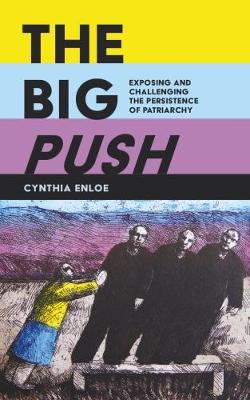Reviewed by Heather on
I heard about this book somewhere on Twitter. I was able to get a copy sent to me through interlibrary loan. Then through the vagaries of mood-reading, I didn't start to read it. I felt that it was going to be an academic slog through feminist theory. But, I had gone through some effort to get it and it needed to be returned soon so I decided to give it a try.
I was so wrong about this book.
I didn't expect to get teary-eyed sitting in a restaurant that specializes in feeding huge plates of food to Trump supporters with a country music soundtrack because of the author's insistence of the importance of the Women's Marches. The author perfectly recreated the feeling of needing to be in the vast sea of people to voice your opposition to what was going on in the country.
I didn't expect to have to totally recalibrate my thinking about how I look at world events because I had missed a major plot point. I had read Richard Holbrooke's book about negotiating the Wright-Patterson Accords to end the Bosnian War. I had read Might Be Our Powers by Leymah Gbowee about women's protests outside the peace negotiations for Liberia. What I missed in both was these was asking why women were not included in the peace negotiations from the beginning. Ending armed conflict is traditionally seen as requiring just the armed participants to come to an agreement. That can stop the fighting but it is ignoring the majority of the population who need to live in the rebuilt country afterwards. Even now, women are not seen as participants even if they are the people still on the ground providing assistance to civilians. The author gives examples of conflict resolutions that were seen to be enlightened because they would let women draft a statement that would be read into the proceeding by a male delegate. There could only be one women's statement though so women from all sides of the conflict had to sit down together and draft a consensus statement that might or might not be taken into consideration by the men who hadn't yet been able to reach a consensus. How would the rebuilding of nations look different if women were included from the beginning?
This book will lead you to see more areas for improvement in our world that you may have been blind to before. I was reading this at the same time as I was reading a book that glamorized a war from a patriarchal perspective. Every comment like that in the other book jumped out at me in a way that it may not have before.
This book gives hope for a world that so far has been beyond most of our imaginings. Hopefully, once people start to see what really could be possible we might be able to approach it.
This review was originally posted on Based On A True Story
Reading updates
- Started reading
- 14 January, 2018: Finished reading
- 14 January, 2018: Reviewed
